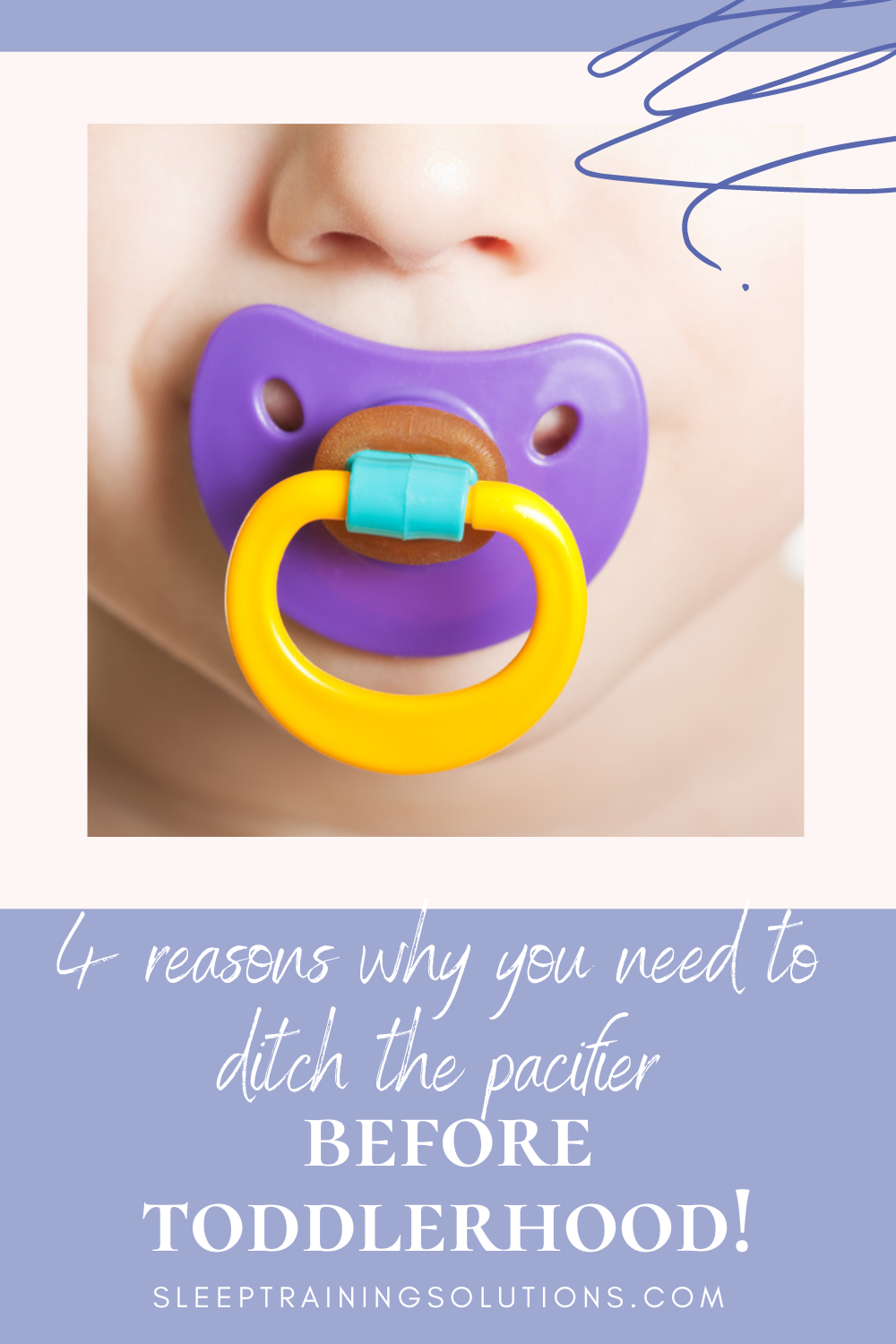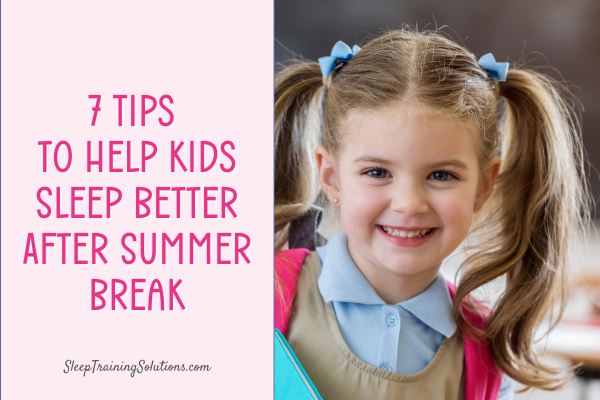4 reasons why you need to ditch the pacifier before toddlerhood!
Have you ever pulled into the parking lot at the grocery store and realized you left the pacifier at your house? Is your child so attached that you drove home to get it – or just bought another one in the store!?
Parents who use pacifiers feel a twinge of guilt the first time they stick a pacifier in their baby’s mouth – but they don’t know how to break the habit! Calming a screaming infant in the grocery line or on a long car trip will make most parents try just about anything they can think of to calm the child down!
But the reason most parents use pacifiers is because that work pretty well for babies. Newborns have the innate instinct to suck. They have limited means of expressing what they want and can’t let you know if they’re hungry, thirsty or in pain. Sucking soothes them and brings them comfort, which is why a baby will suck on just about anything you put in his mouth, whether it’s a bottle, breast, finger or toy.
And then the next thing you know, your baby isn’t a baby anymore, but a toddler or preschooler AND still using the pacifier!
At a certain age, kids are more than capable of learning to self-soothe, and pacifier dependence can cause long-term problems. Many experts agree that pacifier use up until about age one is okay. Anything past age two and there are some worrying issues.
Here are some reasons you should consider ditching the pacifier (well) before your child hits toddlerhood:
1. Sleeping
Pacifiers at this age are sleep props if your child can’t fall asleep without it. They’ll interfere with the consolidation of nighttime sleep which means if your child can’t live without it, she will most likely wake in the night and then not be able to get back to sleep until she can find it. Even if the child isn’t waking you up to help find it, she’ll have to wakeup out of her sleep cycles, keeping her from getting the 11-12 hours of straight sleep she needs every night.
2. Dental problems
Pediatric dentists recommend eliminating pacifier use completely by age four, and limiting it by age two. Once your child loses his baby teeth, his adult teeth can be permanently affected by sucking on a pacifier. Overbites and crossbites can occur, which lead to problems with chewing, speech and appearance. Most dentists agree that the earlier the sucking habit is stopped, the better, so children can hopefully avoid orthodontic appliances down the road.
3. Ear infections
Studies have found a correlation between pacifier use with recurring ear infections. In one study, children who didn’t use a pacifier were 29% less likely to develop ear infections.
4. Speech
Around the age of one, kids enter into their speech development phase. This means they will start trying out sounds and words and will often babble to themselves and others while they learn this new skill. If they constantly have a pacifier in their mouths, they might be less likely to practice talking. Speech and language experts agree that weaning from the pacifier by 18 months is best for speech and language development.
Also, constant pacifier use can make it harder for a child’s tongue and lip muscles to develop normally, according to Patricia Hamaguchi, a speech-language pathologist and author of Childhood, Speech, Language, and Listening Problems: What Every Parent Should Know.
So how do you convince your child to give up the pacifier?
Some kids will start to phase it out themselves as they develop other coping skills around the age of two. But some won’t give it up without a fight!
Over a three-day period, you can start to wean your child off the pacifier by telling him he can only use it in the house. Whenever you go outside the house, tell him it stays behind until you come back. Next tell him he can only have it during a period of time during the day. So for example, only for 30 min during his/her TV time. Tell him that on the third day, it will be time to say goodbye to the pacifier for good, and then make sure you stick to the plan.
Or if you’re looking for some other ideas (or specifically how to say goodbye to the pacifier on the third day), check out this post I wrote compiling what some of my clients have done!
Whichever method you use, be prepared for a few tantrums and tears, but don’t give in. All that teaches your child is that if she throws a big enough tantrum, she’ll eventually get what she wants, which isn’t a great message for her to learn!
I have found that parents are often far more worried about the idea of taking it away, than the actual reality of it….Most children are over it within a day or two!
Bottom line: I recommend getting rid of the pacifier much sooner than toddlerhood - for the reasons listed above and because past the newborn stage, it isn’t needed to satisfy that sucking need! Often parents keep it too long because it’s helping with sleep…but that precisely the reason you need to get rid of it ;)
Related Posts:
This post is for informational purposes only and may not be the best fit for you, your child and/or your personal situation. It shall not be construed as medical advice. The information and education provided here is not intended or implied to supplement or replace professional medical treatment, advice, and/or diagnosis. Always check with your child’s physician or medical professional before trying or implementing any information read here.





